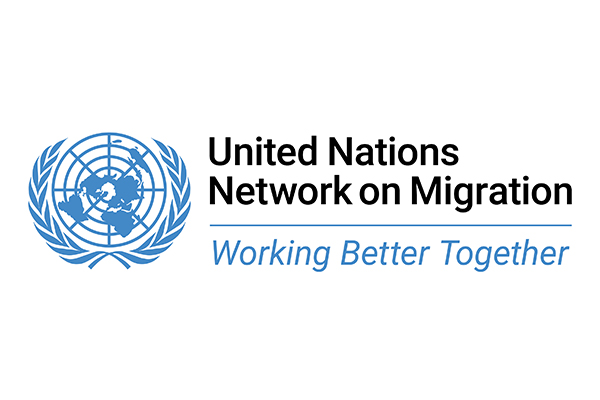Évènements
Informal Consultation on the GCM and its Regional Review
Follow up action
- UN Network to prepare guidance note for Member States in support of regional review process
- UN RECs to share funding needs and updated timelines for the regional review
Summary of sessions
Working Session 1: Overview of regional UN migration coordination mechanisms, challenges and opportunities
- Important to strike balance between flexibility and promoting commonalities/coherence across regions. For example, the different experiences per region re the RECs, RCPs, mandates, the diversity of stakeholders.
- Structures and processes of the regional reviews will differ, and we need to work with that bearing in mind the guiding principles of the GCM, particularly the whole-of-government and whole-of-society, 360 nature and using the Network, including regional Networks, to ensure a coordinated whole of system approach.
- Regional reviews should be inclusive in nature: consider the organization of regional CSO consultations ahead of the regional review
- Partnerships within and between regions are needed; sub regional perspective need to be able to feed into regional level, and the different regional levels need to converse with one another.
- Call to focus on outcomes and what, how and where regions will input in the IMRF, what platform will they have and how will this impact questions raised on specifics- inputs, participants, format, financing, outcomes.
- Noting the time gap between the end of the regional reviews and the IMRF which is longer than other UN global frameworks.
Working Session 1 bis: Planning and status of preparations of the regional reviews, streamlining review and reporting
- Agreement to build on existing processes as much as possible given time constraints, but also need to assess whether these mechanisms are more appropriate for supporting reviews. Roadmaps need to be developed as soon as possible.
- Further discussion needed on how the Network at the global level can play a role in bringing together regional reviews and ensuring some form of coherence/complementarity. Some degree of complementarity and/or core commonalities need to be encouraged, possibly by the Network at the global level given that these inputs must eventually feed coherently into a global review forum- the IMRF.
- Question of financing needs to be addressed, for participation, capacity building at the country level etc.
- Considering the level of buy-in from governments is a key factor- what level, which ministry, is there a national implementation plan already for example.
- IBCs are proliferating in several regions and may be the appropriate fora through which to coordinate support to Member States. Several contain many agencies that are already part of the Network. Need to look at how best to ensure complementarity and avoid overlap.
- More thought needs to be given on how to incorporate inputs from regional coordination bodies that traditionally have covered migration that don’t fit so neatly into the UN structures the Network is composed of- RECs and RCPs v ECOWAS, ECAS, Comprehensive Development Plan in Central America, AUC, LAS.
Working session 2: enhancing regional review capacity and multi-level cooperation, coordination and cross fertilization
- Lack of funding will be an issue. On the Knowledge platform (KP) and the connection hub (CH), the Network is going to provide a first assessment on what knowledge management features are needed to proceed with a road map. Would be good to move on adopting workplans of the network’s core working groups.
- Importance of bringing countries together and facilitate the exchange of knowledge. It requires money to bring these countries together, to discuss, to maintain the incentive and the reason for them to come over to discuss regional reviews.
- It will be key to ensure the cross-fertilization of knowledge and practices takes place and is encouraged. A call not to replicate efforts or platforms that are already existing such as some RCPs that are very active.
- Low hanging fruit can play a role in creating incentives for states to come to the regional tables of discussion by helping them report on issues they feel are good practices they wish to report on or advertise.
- Need to work on complementarity between both compacts will be key the NW works on over the coming year. Key to capture the migration picture in full. This has also regional implications.
- Caution to create more reporting obligations on states. What does it mean in terms of templates, etc. Some RCPs that are very active bring together several ministries around the table, UN agencies. Perhaps we can use these existing platforms instead of duplicating efforts.
Working session 3: regional discussions
| Review under REC | Status |
|---|---|---|
ECA | December 2020 |
|
ECLAC | Second half of October 2020 |
|
ESCAP | Second half of 2020 |
|
ESCWA | End of 2020 |
|
ECE | tbc |
|
Main organizer/s
UN Network on Migration
Language
English
Geographic Scope
Global
Workstream Output
No
Regional Review Process
Non
GCM Objectives
GCM Objectives - General (23 Objectives)
État
Publié
